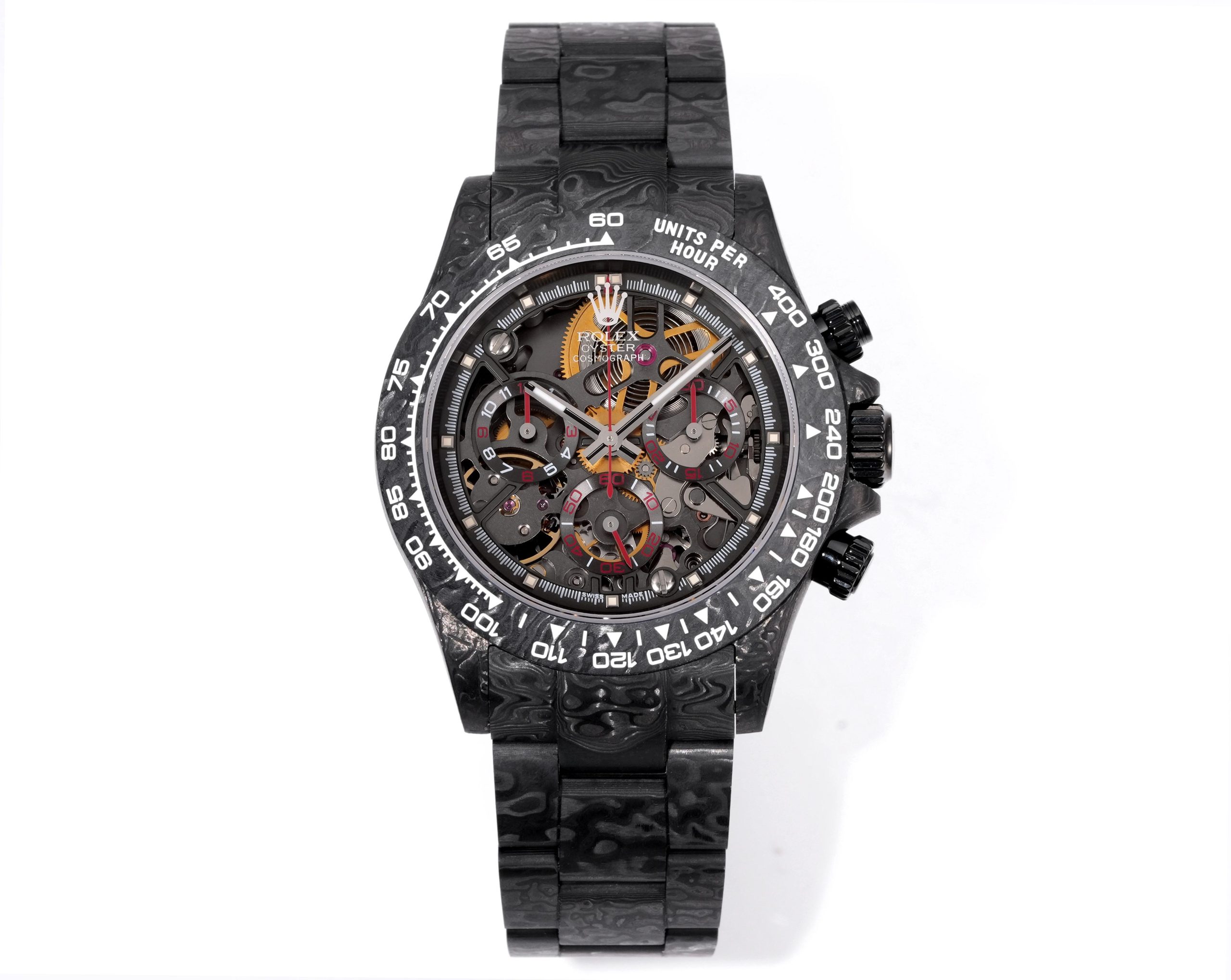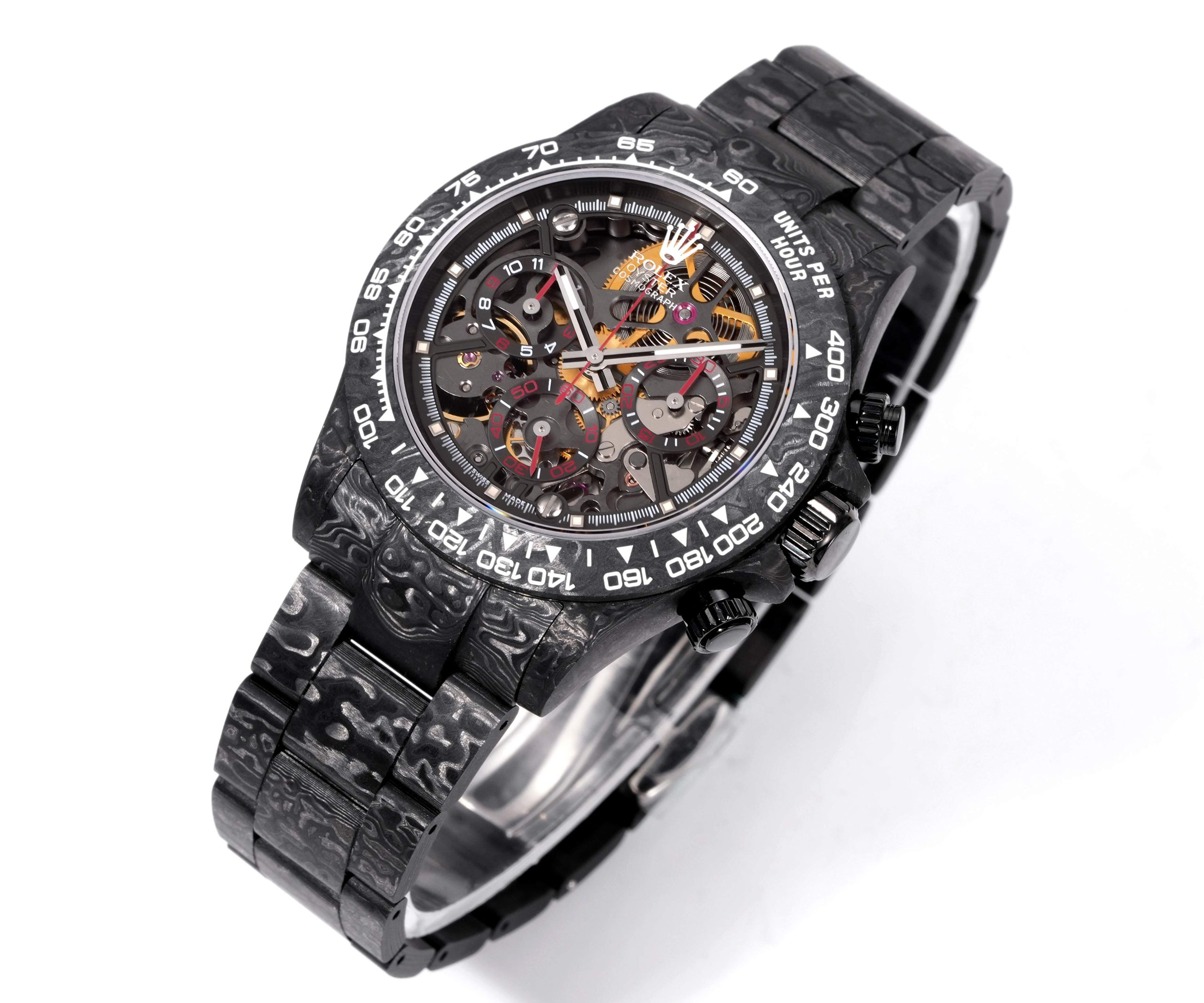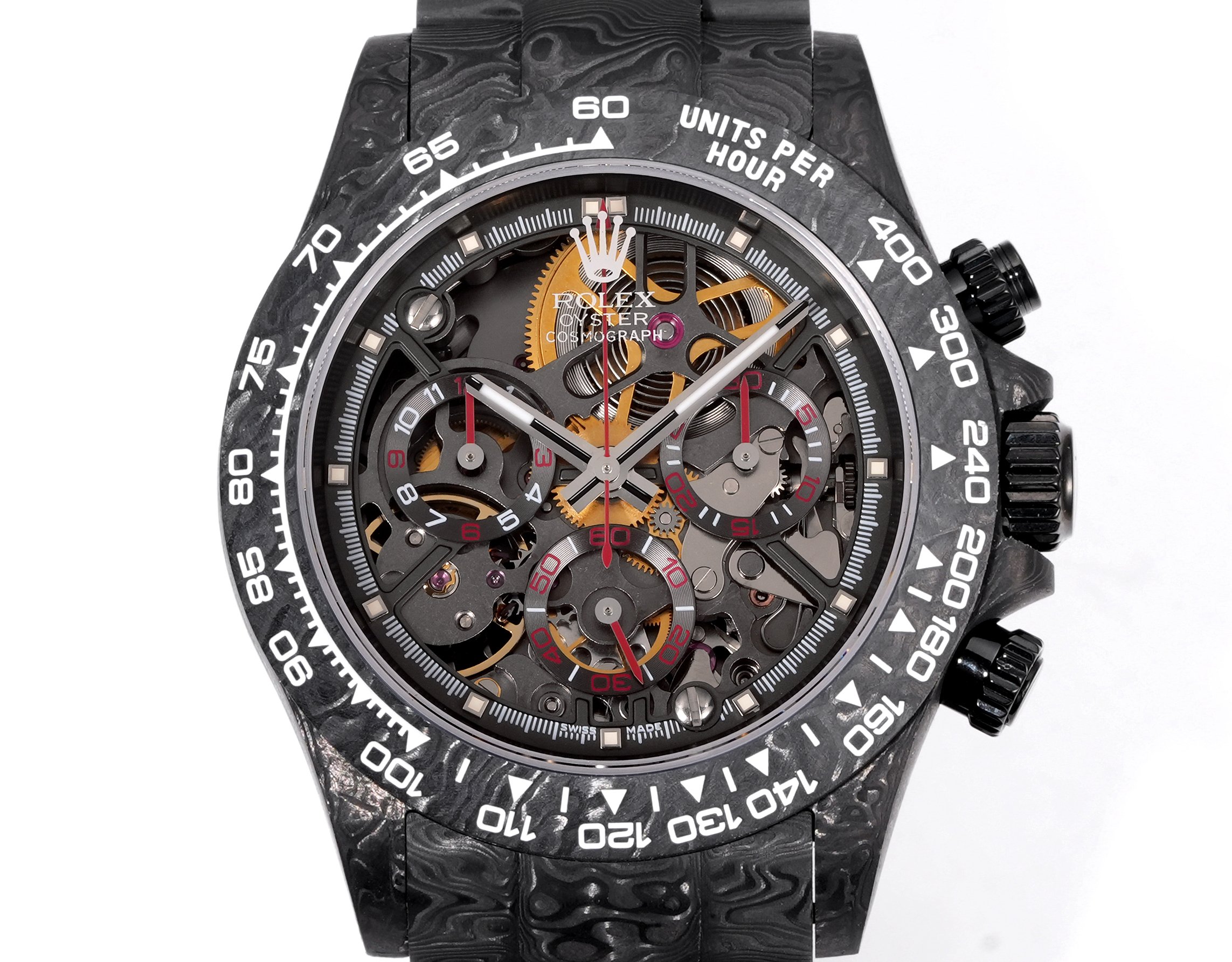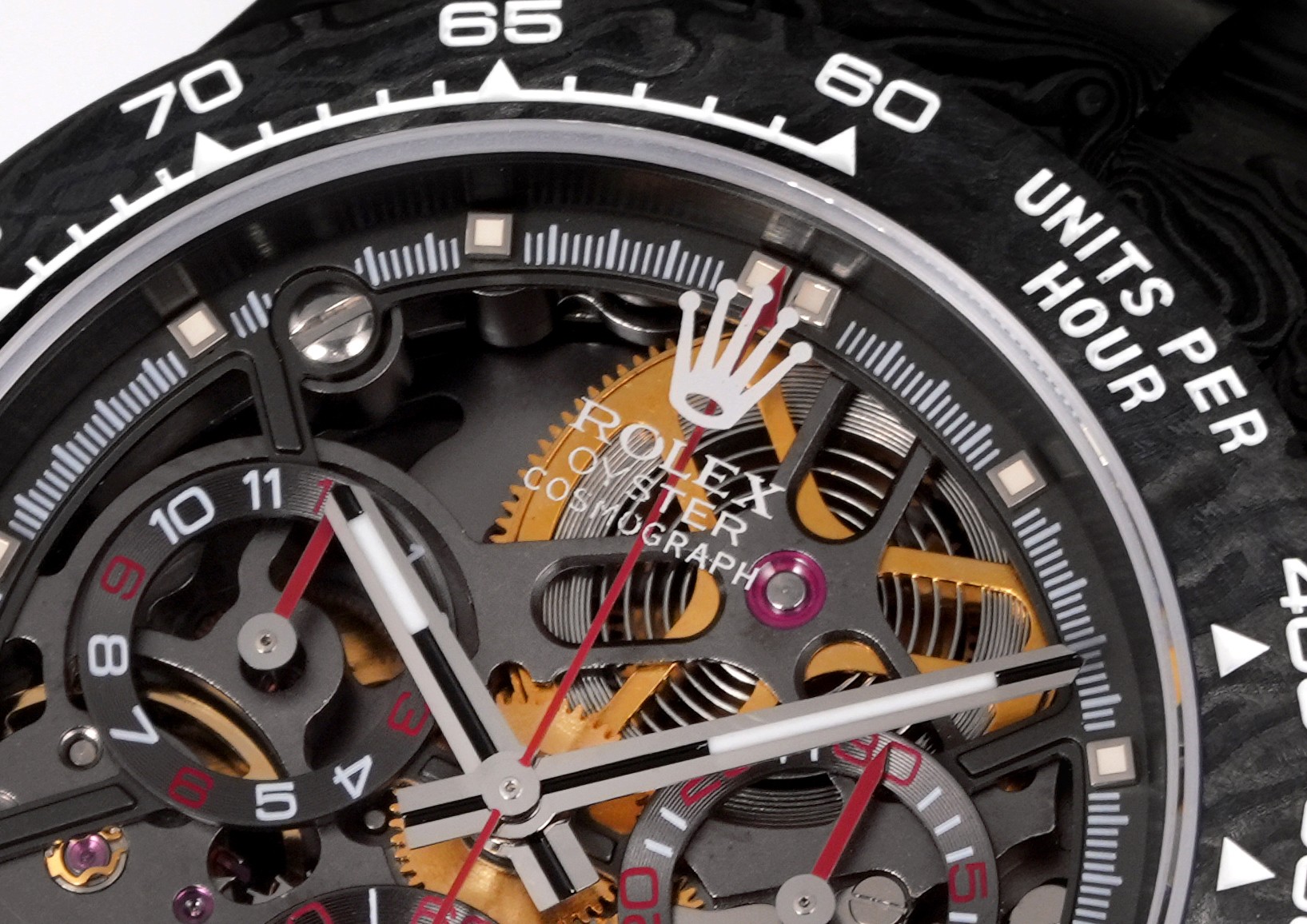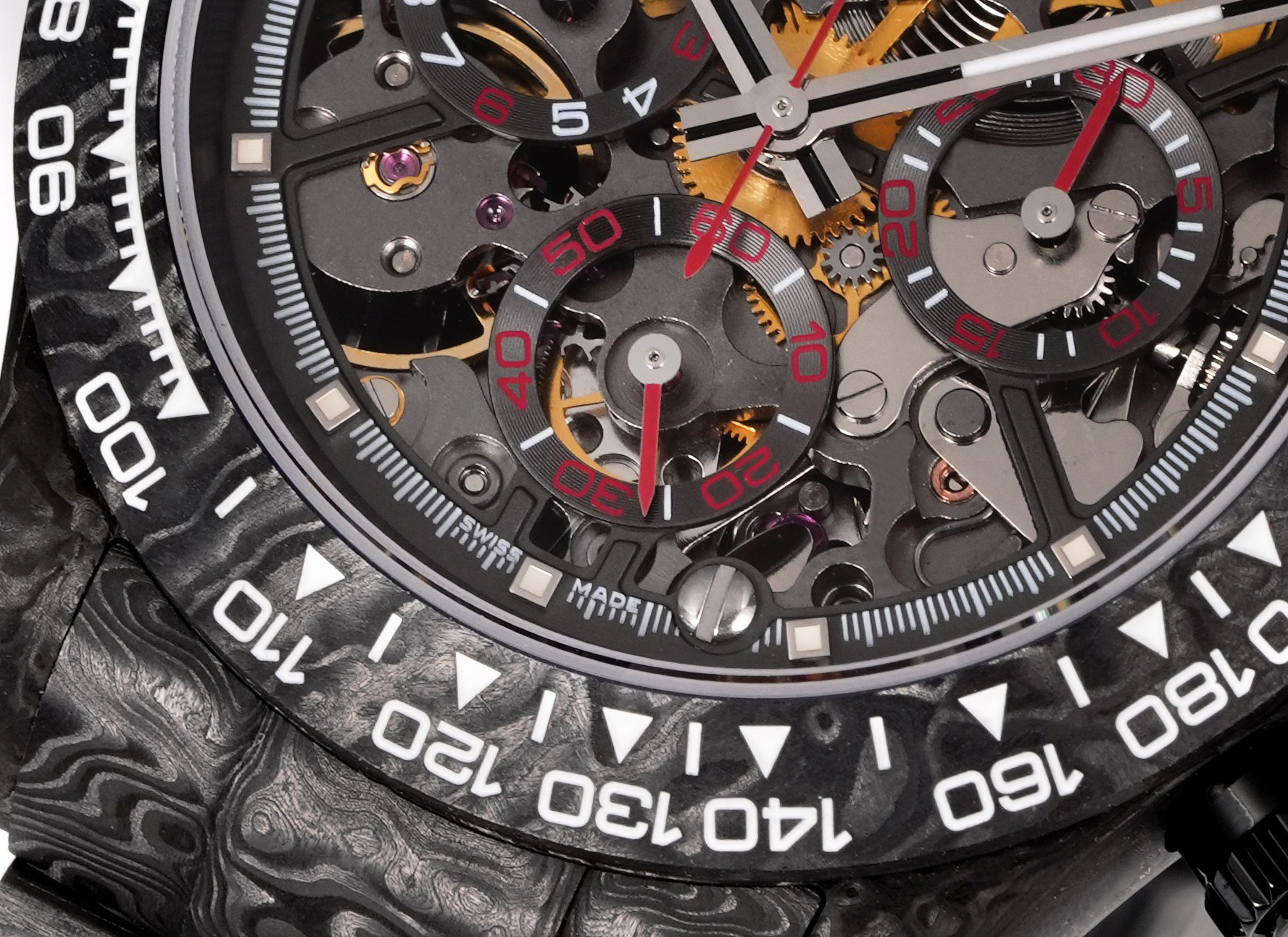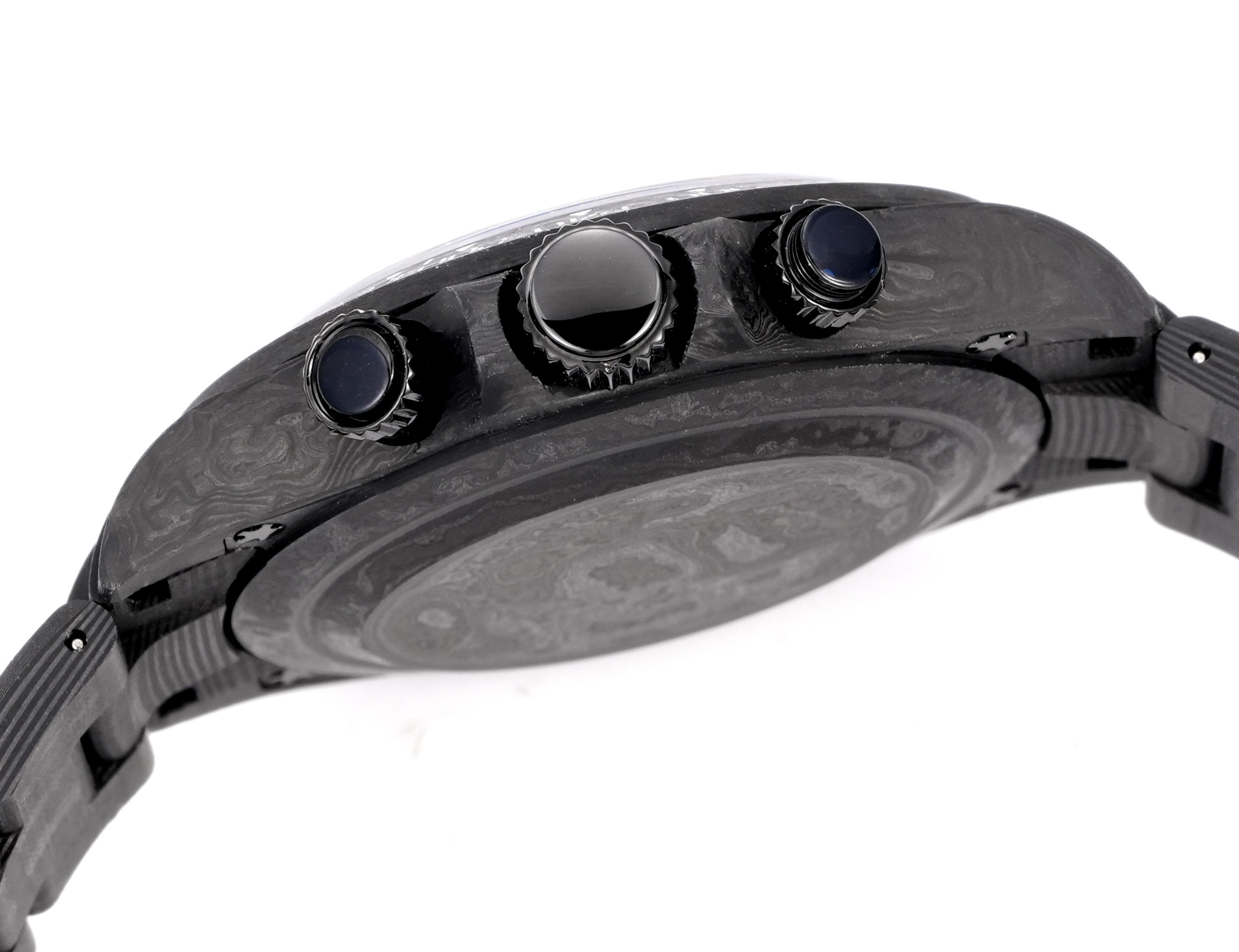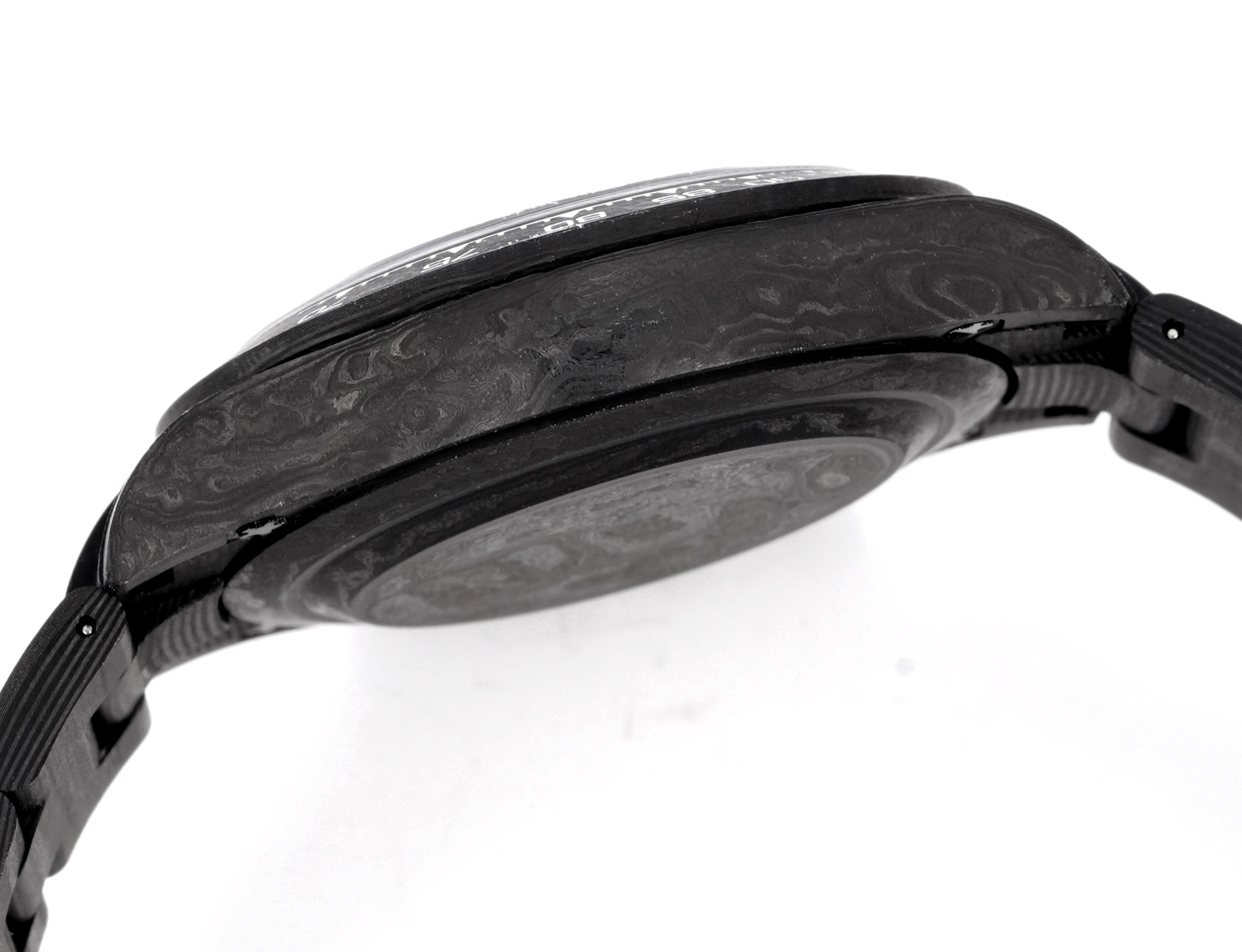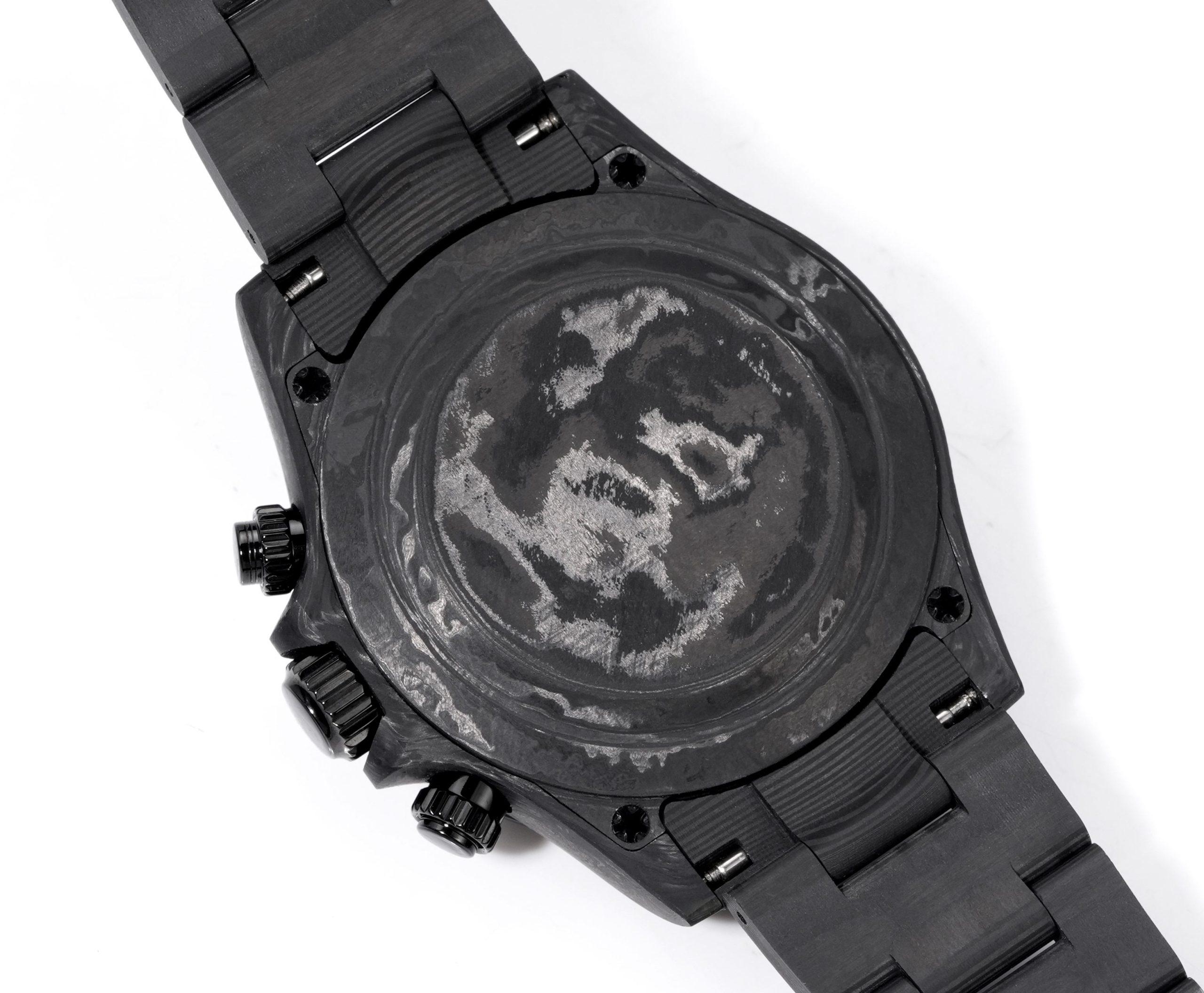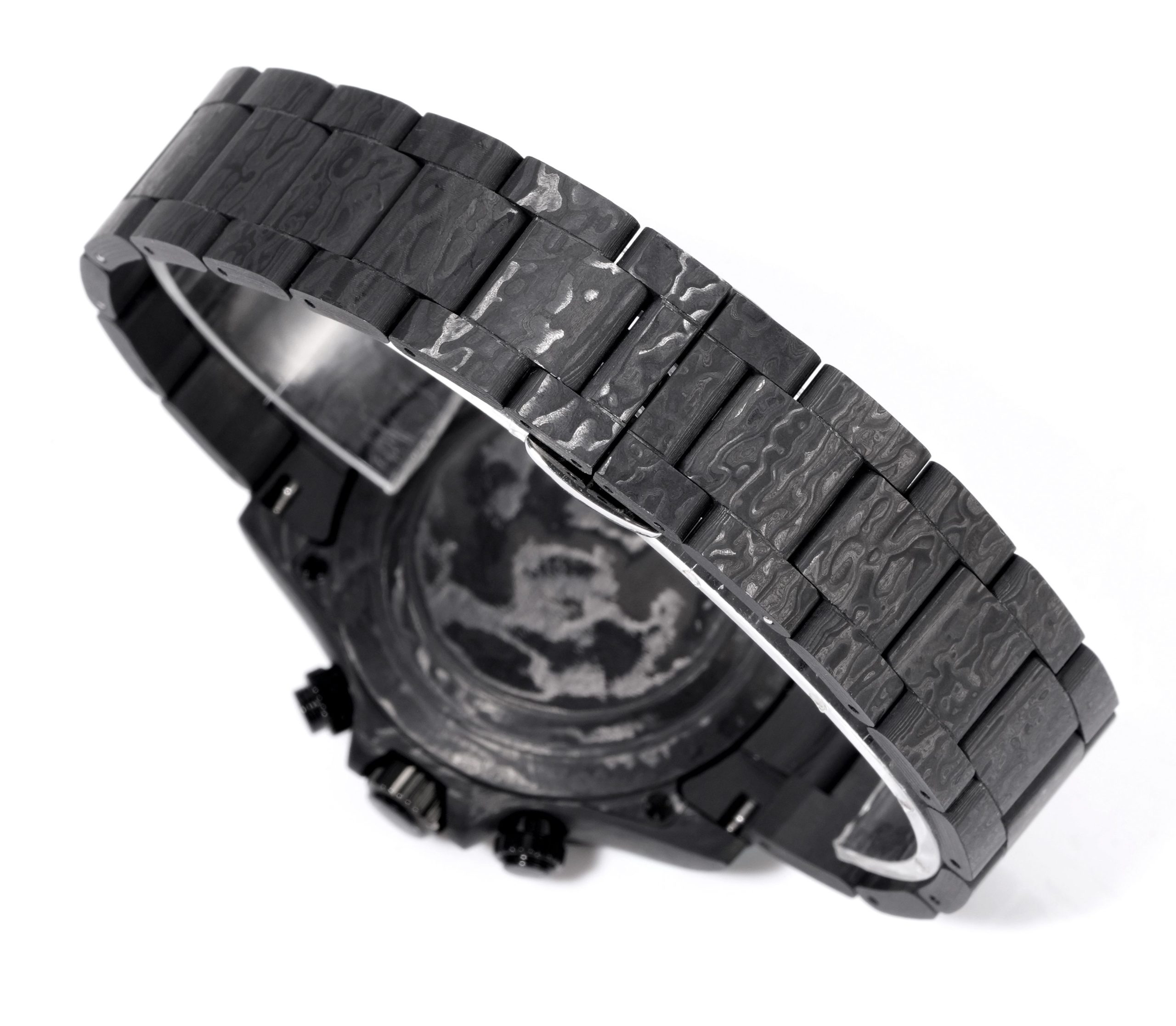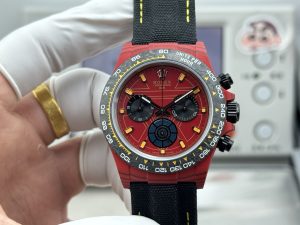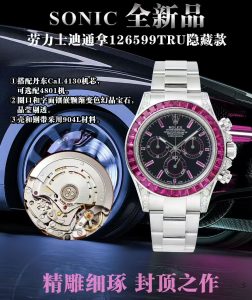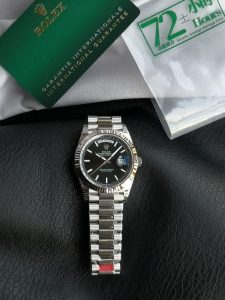In the realm of luxury horology, innovation often serves as the cornerstone upon which the most coveted pieces are built. The all-carbon fiber custom edition of the Rolex Daytona exemplifies this principle through its unprecedented use of advanced materials and precision engineering. Beyond just its aesthetic appeal, this watch challenges traditional notions of luxury, prompting discussions that span from ethics to branding, and even personal value.
The Material Revolution: Carbon Fiber’s Role in Modern Watchmaking
The Rolex Daytona, renowned for its racing heritage and sophisticated chronograph functions, takes a groundbreaking turn with the introduction of an imported composite carbon fiber case. Carbon fiber, with its elegant black hue, is often celebrated for being both light and exceptionally durable—offering strength surpassing steel and a corrosion-resistant quality. Unlike conventional materials such as gold or stainless steel, carbon fiber provides a dynamic texture and pattern that varies with each cut, ensuring uniqueness for each piece.
From an economic perspective, the adoption of carbon fiber represents a significant investment in material science. Although expensive in production, its benefits in longevity and resilience can outweigh initial costs, presenting a sustainable option that aligns with the evolving tastes of luxury watch consumers—a demographic increasingly concerned with environmental impact and product lifecycle.
Ethical Considerations and Branding Dynamics
Rolex’s foray into carbon fiber also invites discourse on ethical consumerism. The choice to use a material like carbon fiber introduces questions about the ecological impacts of sourcing and production. Using materials that minimize environmental damage reflects a progressive stance that caters to consumers who advocate for ethical consumption while desiring opulence.
Branding, too, enters the spotlight. Rolex, a name synonymous with luxury and precision, faces the task of merging tradition with innovation. The carbon fiber Daytona challenges purists who value artisanal craftsmanship associated with traditional materials. Yet, it opens doors to a younger audience eager for novelty and exclusivity within the replica watch market, where the look and feel of luxury can be mirrored at a fraction of the price.
Psychology of Ownership: The Personal Value of Innovation
Owning a unique all-carbon Rolex Daytona is more than a status symbol; it’s an acknowledgment of personal style and technological admiration. The bespoke nature of each watch, dictated by the singularity of its carbon fiber pattern, enhances the psychological allure of ownership. This personalized aspect caters to individualism in a market dominated by mass-produced luxury goods.
Furthermore, the psychological impact extends beyond self-expression to notions of investment and legacy. While luxury watches often promise value retention, the distinctive qualities of the carbon fiber Daytona might shift focus from traditional investment to sentimentality and personal heritage, where the watch becomes an heirloom piece cherished for its uniqueness rather than its market value.
Conclusion: The Future of Luxury Horology
The all-carbon Rolex Daytona stands at the crossroads of tradition and innovation, inviting watch enthusiasts to reconsider what defines luxury today. As materials evolve and consumer priorities shift, the watch industry must adapt, embracing sustainability, individuality, and ethical practices. This edition exemplifies the potential for luxury watches to reflect broader changes in society, urging both brands and consumers to expand their horizons. It’s not merely a question of prestige; it’s about embracing a future where luxury integrates seamlessly with technological advancement and ethical responsibility.
